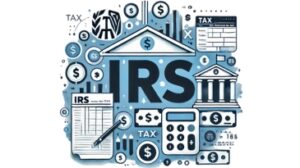
The Ultimate Guide: Everything You Need to Know About Travel Pay
Introduction to Travel Pay
There are many industries where traveling is part of your job. It may include business meetings in your state, or out of town assignments. Travel pay is the payment employees receive for the time spent in traveling. It is high important to know how travel pay works. Understanding the functions of travel pay is important for employees as well as employers. It ensures compliance with labor laws and fair reimbursement practice.
In this blog, we have come up with various aspects of travel pay. We will understand what things are eligible for reimbursement. You will learn how to calculate travel pay and how one can manage travel expenses. This blog will cater to the needs of both employer and employee.
Types of Travel Pay



Business Travel Pay:
Employer must pay for employee’s travel time outside work hours. Work-related trips, eg. conferences, meetings, should be compensated. Time spent traveling by plane, train, car, or other means must be included. Overnight travel or long-distance trips may also qualify for travel pay. At times if the travel time falls outside of normal working hours, employees must be paid.
Commuting Pay:
If an employee is traveling to and from regular work location, then there is no need to compensate them. But if they are traveling to a location other than a usual workplace, then it must be compensated. This may be due to emergency travel, or off hours travel.
Mileage Reimbursement:
Employers can use their own vehicles for work-travel. In that case, employer may offer mileage reimbursement. Expenses like fuel and wear and tear shall be covered by the employer. The IRS sets the standard mileage reimbursement rate each year (e.g., $0.655 per mile in 2023).
Per Diem Travel Pay (Daily Allowance):
Employers may offer a per Diem allowance to cover meals, lodging, and incidental expenses while traveling for work. The General Services Administration (GSA) sets the federal per Diem rates based on location.
Portal-to-Portal Pay:
Some employee travel between different work locations during the same workday. Time spent traveling to job sites, customers, or between different office locations may be considered portal-to-portal travel. It is often compensable.
Overtime for Travel Time:
As per FMLA, if employees spend travel time outside regular working hours and it exceeds 40 hours in a workweek, they may qualify for overtime pay. One must note that it overtime is typically paid at 1.5 times the employee’s regular hourly rate.
Remote Travel/ Temporary Assignments:
Company may hire employees to work remotely. At times, they are required to travel to the main office or for work-related events. Then, they are entitled to travel pay, depending on the circumstances and company policies. Employees might be temporarily assigned to a different location. Then they must be compensated for travel to and from the temporary worksite if it exceeds their normal commute.
Waiting Time During Travel:
Consider, an employee arrives at the airport at 9 a.m. for a 12 p.m. flight for a business meeting. If their regular workday is 9 a.m. to 5 p.m., the waiting time between 9 a.m. and 12 p.m. could be considered compensable. Time spent waiting during business travel can be compensated if it occurs during regular work hours or if the employee is actively working while waiting.
For non-exempt employees, waiting time during travel that occurs during regular working hours on any day of the week (including weekends) is often considered compensated under the FLSA.
Travel pay can vary from company to company policies. We truly suggest you to please refer to your company’s guidelines. You can also go through the federal or state labor laws (e.g., FLSA) for detailed information on their entitlements.
Travel Pay Regulations
Travel pay regulations in the U.S. primarily fall under the Fair Labor Standards Act (FLSA). This outlines when travel time should be considered compensable for non-exempt employees. Employers must adhere to federal regulations, and additional state labor laws may impose stricter requirements.

- Commuting Time (Home to Work Travel):
Normal commuting time for an employee to travel from home to their regular place of work, is not compensated under the FLSA. Yet, if an employee is required to travel to an alternate work location or if they are called in for an emergency after their normal hours, this travel may be compensated, depending on employer policies. - Travel During Regular Work Hours:
Employees may travel during their regular working hours for work purposes. This time is generally compensate under the FLSA. For example, if an employee’s workday is from 9 a.m. to 5 p.m., travel between 9 a.m. and 5 p.m. for work-related tasks (e.g., attending a meeting, going to a client site) must be paid. - Work Performed While Traveling:
Any time spent working while traveling must be paid. This may include preparing reports, answering emails, or attending virtual meetings. This is true regardless of when the work is performed (even outside regular work hours). - State-Specific Travel Pay Regulations:
With federal regulations, individual states may have their own labor laws regarding travel pay. States like California often have stricter rules that may require compensation for certain types of travel time. This may include daily commutes for non-exempt employees. Some states have different thresholds for overtime, for e.g. overtime after 8 hours in a day). This could impact travel pay when travel extends the workday. - Mileage Reimbursement:
Under federal law, employers are not required to reimburse employees for travel expenses like mileage. However, many employers offer mileage reimbursement for employees using personal vehicles for work-related travel. This is often based on the IRS standard mileage rate (e.g., $0.655 per mile in 2023). Some states (e.g., California) require employers to reimburse employees for travel expenses, including mileage.
How to Calculate Travel Pay?
Travel pay can vary depending on your role. It considers few key aspects such as exempt or non-exempt employee under the Fair Labor Standards Act (FLSA). The type of travel (local, overnight, or international) you do, helps to decide travel pay. You must understand company policies. The FLSA doesn’t require employers to pay for all travel time. It does mandate travel pay under specific circumstances, particularly for non-exempt employees. Exempt employees are generally not entitled to overtime or travel pay. Yet, there can be exceptions, where company policy may dictate otherwise.

Common Scenarios to Calculate Travel Pay
Here are a few examples to help clarify the calculation of travel pay:
- Scenario 1: Travel Between Job Sites. Let’s say, an employee travels from one job site to another during the workday. Then, the travel time between locations is compensable. If the employee spends two hours commuting between sites, they must be paid for those two hours at their regular rate.
- Scenario 2: Same-Day Out-of-Town Travel. Let’s say, an employee is asked to travel out of town and return the same day. Then, the travel time that occurs during their normal work hours should be compensated. For example, they travel from 8:00 a.m. to 11:00 a.m. They return from 4:00 p.m. to 6:00 p.m. The time between 8:00 a.m. and 5:00 p.m. counts as paid travel.
- Scenario 3: Overnight Travel. For overnight travel, only the hours that fall within the employee’s typical working hours (regardless of the day) are compensable. If travel occurs from 2:00 p.m. to 8:00 p.m., but the employee’s regular working hours are 9:00 a.m. to 5:00 p.m., only the time from 2:00 p.m. to 5:00 p.m. needs to be paid.
Tools and Resources for Travel Pay Calculation
Many companies use payroll software or apps that track time, mileage, and expenses. These tools simplify travel pay calculations. Some commonly used tools include:
- Quick Books Payroll

- ADP
- Gusto
These tools help ensure accurate compensation and streamline the travel reimbursement process.
Tax Implications of Travel Pay
When you travel for work, you can get paid. This money is called travel pay. Some of this money is taxed, like your normal pay. This means you have to give some of it to the government. But sometimes, not all the money is taxed. If your boss gives you money to pay for food, hotels, or other things you need while traveling, this is called a per diem. This money is not always taxed if you use it for travel needs. If you drive your own car, your boss may pay for each mile you drive. This is called mileage pay. It helps cover the cost of gas and using your car. To get the right pay, it’s important to keep your receipts and write down what you spend. Your boss will need to see how much you spent on food, hotels, or driving. Some money, like travel time pay, will be taxed like your regular pay. Other money, like for meals or hotels, may not be taxed if it’s only for travel. This way, you know which part of your pay will go to taxes and which part won’t.
Is Travel Pay Taxable?

Travel pay is usually taxed unless it follows special IRS rules. Different kinds of travel payments are taxed in different ways:
- Pay for Travel Time: If a worker gets paid for time spent traveling, like going between job sites or traveling for work during normal hours, this pay is treated like regular wages. It is taxed just like regular pay, meaning it will have federal income tax, Social Security, Medicare, and unemployment taxes (FUTA) taken out.
- Overtime for Travel: If a worker travels and works over 40 hours in a week, any extra overtime pay is also fully taxed just like regular earnings.
Case Study
 Case Study: Construction Worker Travel Between Job Sites
Case Study: Construction Worker Travel Between Job Sites
Scenario:
John works as a construction laborer for a company that has multiple job sites across the city. His normal work hours are 7:00 a.m. to 3:30 p.m. The company has him report to different job sites each day and sometimes asks him to travel from one site to another during the day.
Travel Pay:
John’s travel from home to the first job site is not paid (regular commuting), but any travel between job sites during work hours must be compensated. For example, if John spends 1 hour driving from one site to another at 10:00 a.m., this time is part of his paid workday. If John’s travel time adds up to more than 8 hours in a day, he could also be eligible for overtime pay, which would be taxed like regular income.
Outcome:
John is paid for all travel time that occurs between sites during his workday. His total hours worked, including travel between sites, are counted for regular and overtime pay.
Conclusion
Travel pay is an essential part of compensation for employees who travel for work. Understanding how travel pay works—including what is taxable, how per Diem allowances are treated, and how reimbursements function—helps both employees and employers ensure they comply with IRS rules. Whether it’s paid travel time, overtime for travel, or non-taxable reimbursements, clear policies and proper documentation are key. Knowing the tax implications of different types of travel pay not only avoids confusion but also ensures fair compensation for time spent on the road.






